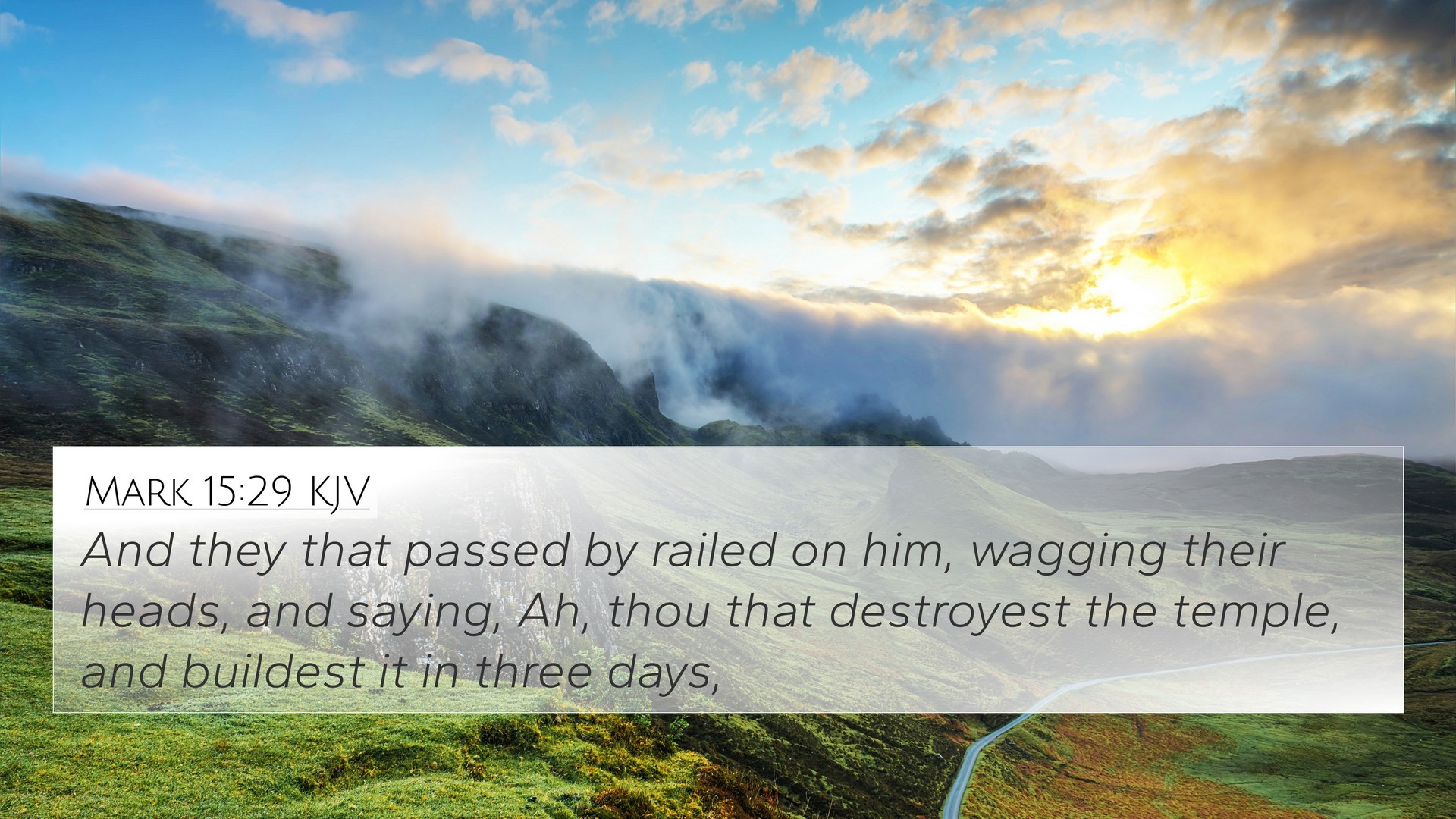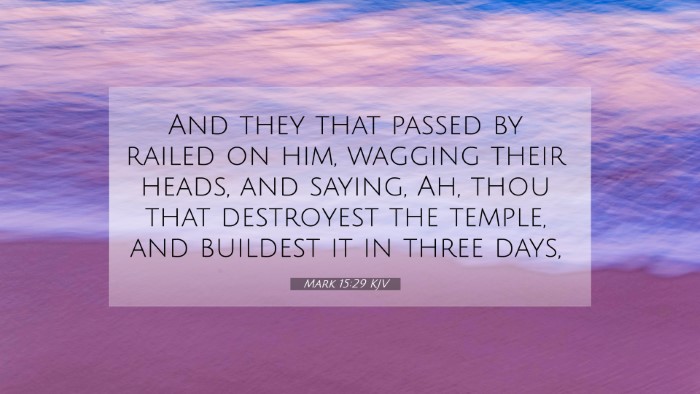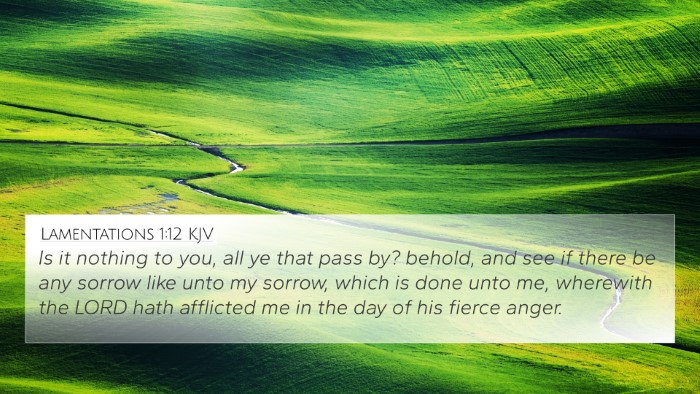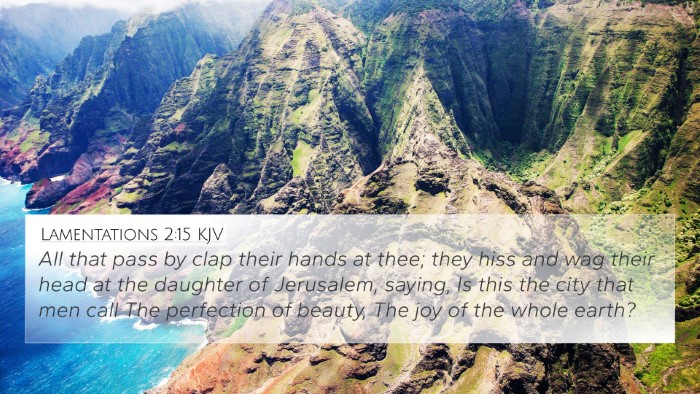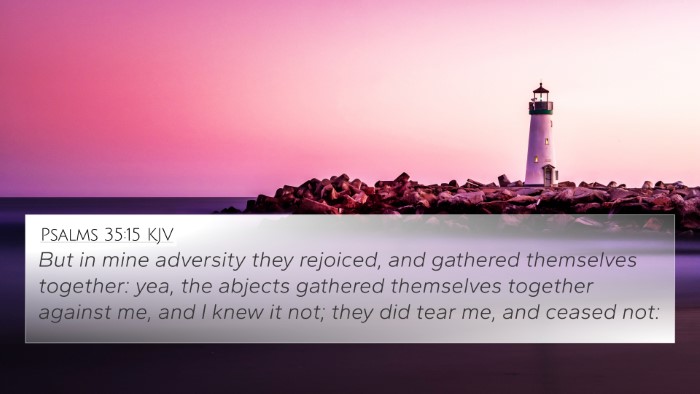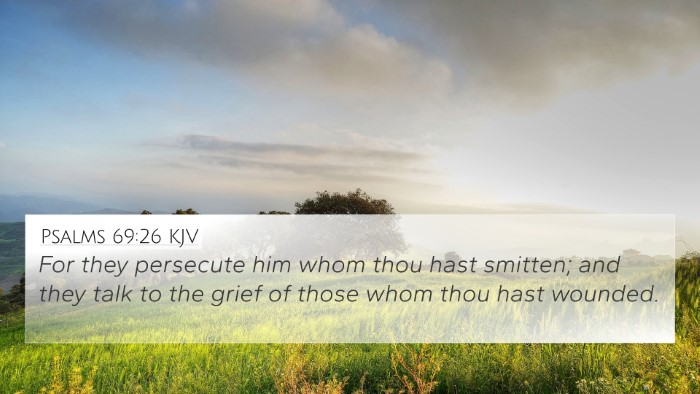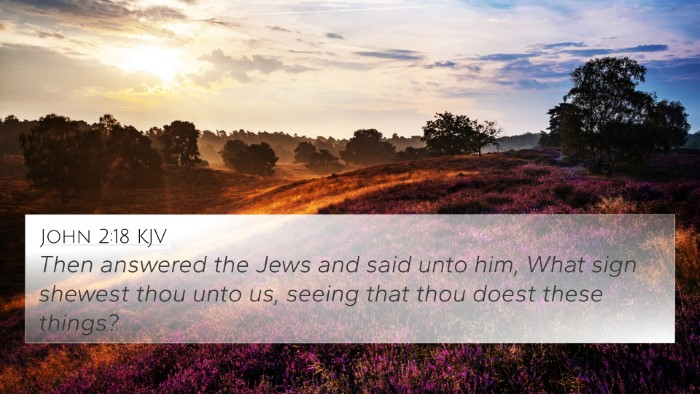Meaning of Mark 15:29
Verse Context: Mark 15:29 states, "And they that passed by railed on him, wagging their heads, and saying, Ah, thou that destroyest the temple, and buildest it in three days," (KJV). This verse occurs during the crucifixion of Jesus, highlighting the scorn and ridicule He faced from onlookers.
Summary of Interpretations
This verse captures a significant moment showcasing the fulfillment of prophecies and Jesus’ identity as the Messiah amidst the chaos of His crucifixion. The comments from passersby reflect typical human disdain and misunderstanding of divine purposes.
Commentary Insights
Matthew Henry's Commentary
Matthew Henry emphasizes the mockery Jesus faced and how the crowd’s scorn illuminates the spiritual blindness prevalent during His passion. The act of wagging heads signifies derision, reinforcing the prophecy of being rejected. Henry also points out that this mockery reflects a direct contradiction to Jesus' true role as the Savior.
Albert Barnes' Commentary
Albert Barnes focuses on the phrase “destroyest the temple,” noting that it references Jesus’ statement about His own body as the temple and how He would raise it in three days. Barnes suggests that the jeers were rooted in misunderstanding, further reflecting on the peoples' ignorance regarding the spiritual significance of Jesus' death and resurrection.
Adam Clarke's Commentary
Adam Clarke discusses how the remarks made by the passerby underscore the incredulity of those present. Clarke suggests that the temple's destruction metaphorically speaks to the disruption of traditional religious practices through Jesus' ministry. He asserts that this ridicule is both an act of fulfillment for prophecies concerning the Messiah's suffering and a critique of human folly.
Cross-References
- John 2:19: Jesus speaks of destroying and raising the temple, referring to His body.
- Matthew 27:39: The mockery of Jesus is recounted, emphasizing the shared disdain among witnesses.
- Luke 23:35: Similar mocking remarks are made, showcasing the consensus in the crowd’s scorn.
- Psalm 22:7-8: Prophetic words about mockers connecting to the crucifixion event.
- Isaiah 53:3: A prophecy about the suffering servant, aligning with Jesus' experience of rejection.
- Mark 14:58: Reference to accusations about Jesus threatening to destroy the temple.
- Acts 6:14: Further accusations against Jesus’ followers reiterate the mockery surrounding His claims.
Thematic Connections
This verse serves as a reminder of the themes of humiliation and redemption prevalent throughout the New Testament. It encourages a reflective understanding of how societal rejection often accompanies divine missions. On a broader scale, the verse contributes to the inter-Biblical dialogue concerning the identity of Christ and the misunderstanding of prophecies regarding the Messiah across Scripture.
Conclusion
Mark 15:29 exemplifies the stark contrast between human rejection and divine purpose. The commentaries reveal deep insights into the nature of Jesus’ mission, the misunderstanding of His words, and the overarching fulfillment of scripture in His passion. These reflections enhance the understanding of this critical moment in Christian theology, highlighting the significance of cross-referencing Biblical texts to unveil deeper truths.
Tools for Further Study
If one wishes to explore the connections between the verses cited and Mark 15:29, utilizing a Bible concordance or cross-reference guide can be invaluable. Cross-reference Bible study methods encourage the examination of such interactions across scripture to enrich one’s understanding of Biblical themes.
